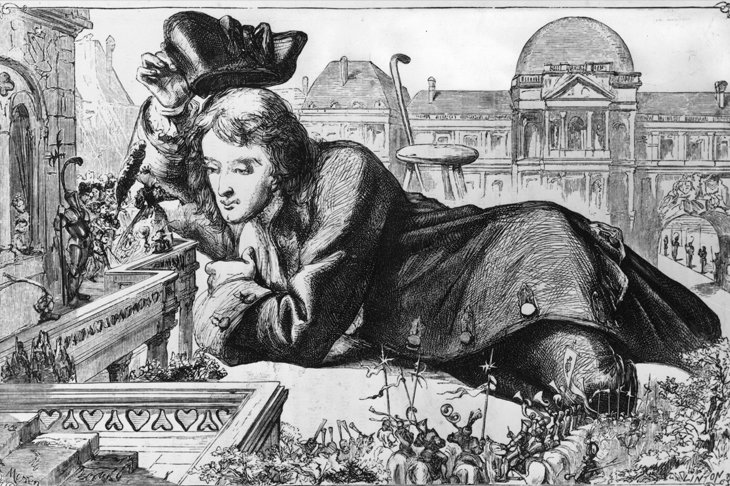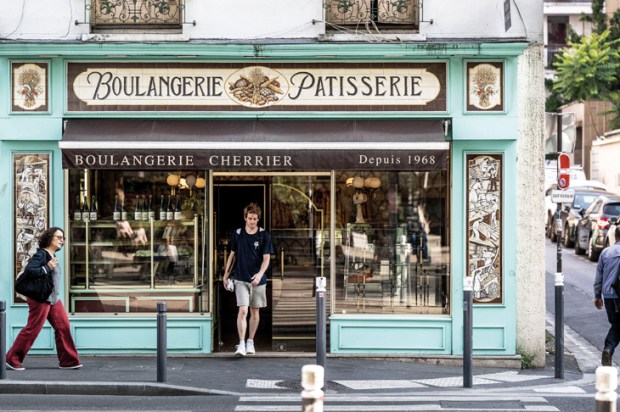The Spectator Australia Literary Investigations Unit is renowned for uncovering many long-lost masterpieces, but few match the significance of its discovery of the missing six chapters of Jonathan Swift’s Gulliver’s Travels. We are now privileged to release the first of these works of genius.
Chapter IVa. When I had been on Lilliput for about 6 months, the illustrious monarch of that kingdom became fascinated by the political and social structure of my homeland. He began to summon me into his presence every day and subject me to hours of intelligent and perceptive questioning on this subject which clearly intrigued him. In return, I was pleased to share with him the experience I drew from having lived and worked in a vastly superior culture and body politic to his own, in the hope that my knowledge might lift him and his subjects out of the ignorance and naiveté in which I had found them. It was on one such day that our discussion resumed on the true nature of the political parties in my country. I explained to him that my party, the Liberal party, had presided over many years of prosperity and happiness by promoting the freedom of the individual, private enterprise, low taxes, surplus budgets, modest spending and small government, policies which elicited the support of the people and guaranteed that my party was regularly re-elected. (His Majesty, being only six inches in stature, was especially attracted to small government and small business). The King was impressed by our success but being an intelligent man , he asked me if we were still in power, to which I had to admit that I did not know, as some months before I set sail on the journey that resulted in my being shipwrecked, our country had been visited by a terrible plague, bringing ruin and death in its wake. I explained that the plague had worsened and that, very soon, many in the country were unemployed and facing penury. The prime minister had declared there was no limit to the money his government would spend to save the country and its people. He then decreed that those who were thrown into unemployment should be paid by the government to continue not working. And, although they would normally be expected to perform good works in thanks to the community for paying them not to work, they were now relieved of this obligation, it being too burdensome for government officials to supervise them. Moreover, as an extra inducement to remain unemployed the government had paid them a bonus, as was paid also to those on every type of social welfare. For those who remained employed, their masters were instructed to continue employing them, although not requiring them to work, and the government would also pay their wages. Should this result in their receiving more money than they did before the plague, they were required to keep the excess as a contribution towards the notion of equality between workers. The King raised a dubious eyebrow at this report, and I heard a sudden drawing-in of his regal breath. But I resolutely continued and explained that the merchants could not afford to send their produce to market, whereupon the government decreed that it would henceforth pay for its transportation.
Encouraged by that precedent, an airline had complained that it could no longer stay in business, as no one would buy its tickets, whereupon the government made it a grant of many millions of dollars and, in turn, the happy recipient decided it would stay in business after all and spend the money on 10 new aircraft. ‘You mean, I presume’ the King interrupted, ‘it was a loan’. When I explained that the money was a gift, that being more in line with enlightened trends in modern economics, there was another drawing-in of breath from the King. But I hastened to add that this largesse was widely supported by most captains of industry who then requested and accepted similar largesse for their own fields of endeavour.
As the King is a devoted family man, I explained that, some years before, parents had abandoned the burden of caring for their own children if they found it too onerous, and simply paid others to look after them; the government had now taken this arrangement a step further and decreed that it would pay the entire cost of such care itself. Then there was housing of the citizens, and I explained that because of the plague the government would pay $25,000 towards the cost of buying a house or renovating it. Some mean-spirited persons of the curmudgeonly sort that one finds in any society had claimed that this would result in owners of property increasing the price of their houses by $25,000, but that piece of nonsense was roundly rebutted by experienced real estate agents and other observers who wrote in the financial newspapers. Moreover, tenants could now defer their rent, could not be evicted and their landlords received a similar indulgence to avoid paying their mortgages. The government next decided to pay money to small businessmen (the King’s eyes lit up) and to guarantee their debts. A generous sum of $1 billion was given to help those in tourism, agriculture, fisheries, education and the arts. Finally, the government had tried to defeat the plague by stopping travel, closing businesses and locking the people in towers that were guarded by the police and the army.
I had thus explained to the King how his simple and childlike people could become a modern and sophisticated society. Accordingly, it was disappointing to hear him say: ‘Have all your ministers gone mad? You have thrown away your noble principles and abandoned the freedom of the individual, private enterprise, surplus budgets and modest spending. You are turning prosperity into poverty. You have thrown away your liberties and taken the first steps to becoming slaves. And your master will be the state.’
But the poor deluded man knew no better.
Got something to add? Join the discussion and comment below.
Get 10 issues for just $10
Subscribe to The Spectator Australia today for the next 10 magazine issues, plus full online access, for just $10.
You might disagree with half of it, but you’ll enjoy reading all of it. Try your first month for free, then just $2 a week for the remainder of your first year.















Comments
Don't miss out
Join the conversation with other Spectator Australia readers. Subscribe to leave a comment.
SUBSCRIBEAlready a subscriber? Log in